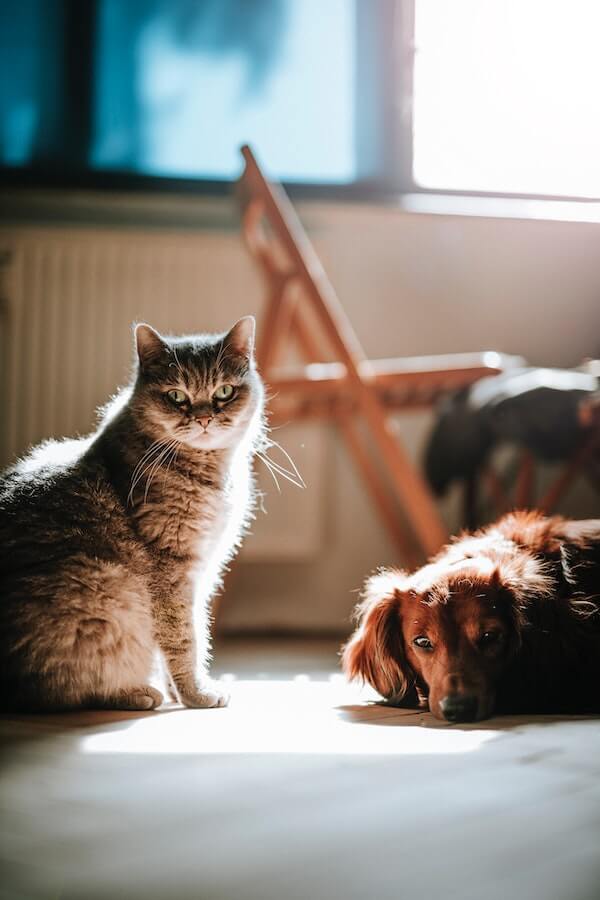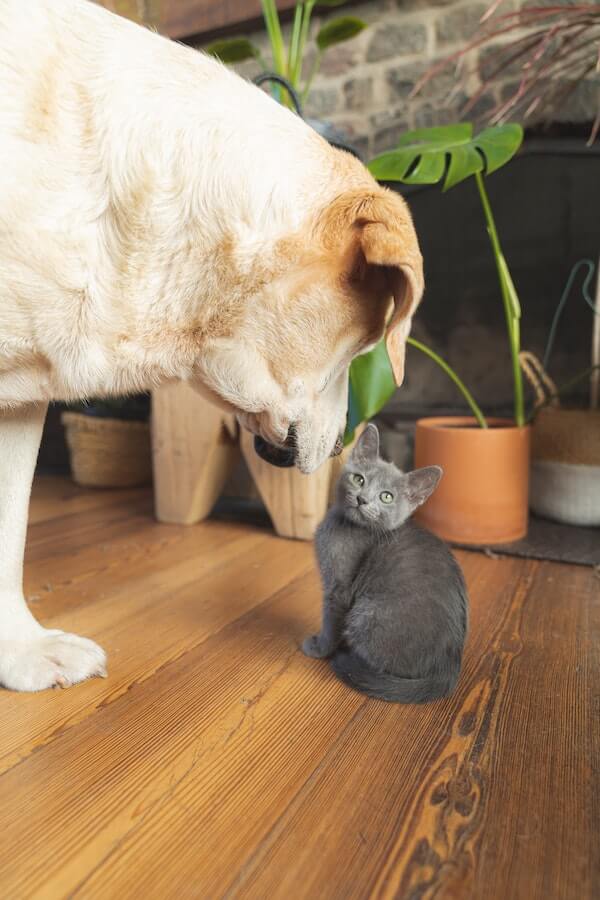
Are you tired of having your furry friend digging around in the litter box? Keeping your pup away from the litter box can be a challenge, but it is possible.
With some patience and effort, you can find ways to train your dog to stay away from the litter box and keep both them and your home clean.
This article gives you an insight into how to keep your pooch away from the litterbox! Let’s start with the most commonly asked question.
Why is my dog obsessed with the litter box?
If your dog is obsessed with the litter box, you’re not alone. Many pups find themselves drawn to this magical place of secret delights.
But why? Here are five possible reasons why your pup has an unhealthy addiction to their litter box:
1. The Litter Box is a Comforting Place
For many dogs, the litter box is a safe retreat from the hustle and bustle of family life. For those who suffer from separation anxiety or fear, the litter box can provide comfort during times of distress.
2. It Smells Good
Dogs have much more sensitive noses than humans, so it’s no surprise that they may be attracted to the scent of the litter box.
3. It’s a Delightful Snack
Some dogs may be attracted to the litter box because of the delicious snacks lurking within, such as treats or kibble that might have been dropped in there by accident.
4. Anticipation of Fun
Is your pup always waiting near the litter box? This could mean they’re excited for the chance to explore and play with its contents!
5. They Love to Dig
Many breeds are predisposed to dig, and a litter box is an ideal place for them to do so without getting into trouble.

Is litter box harmful to dogs?
Having a litter box around your home can be hazardous for dogs. Here are three potential dangers that can arise from having one in the vicinity:
1. Accidental consumption of cat litter:
Cats use the litter box to get rid of their waste, which is usually made up of clay or silica, both of which can be toxic if ingested by dogs.
When dogs come into contact with this material, they may try to eat it. This can lead to vomiting, loss of appetite, and even death depending on how much was consumed.
2. Contracting parasites or illnesses:
The bacteria and parasites found in a soiled litter box can be passed on to your dog if they come into contact with it directly or indirectly.
This can lead to serious illnesses such as Salmonella or Giardia, which can be very dangerous for your pup’s health.
3. Traumatic experiences:
Even if a dog isn’t directly exposed to the litter box, they may still suffer from negative psychological experiences when exposed to it.
The smell of the feces and urine in the box may cause fear or anxiety in some dogs, leading to further behavioral issues.
Additionally, cats defending their own territory by hissing or swatting at intruders near their litter box could also cause trauma in some pups.

How to keep your dog away from the litterbox?
There are several steps you can take to make sure your dog stays away from the litter box and is safe.
1. Keep the litter box in a separate room:
The best way to keep your pup out of the litterbox is by keeping it far away from them. A bathroom or laundry room would be ideal, as long as it’s not too close to where your pup usually hangs out.
2. Block entries and exits:
If you don’t have an extra room for the litter box, try blocking off entries and exits that lead into a room that contains one with baby gates or other obstacles so your pup won’t be able to get to it easily.
3. Train them using rewards:
Teach your pup to stay away from the litter box by rewarding them with treats and praise when they don’t go near it.
This will help reinforce good behavior and help your pup associate the litter box as a place to avoid.
4. Clean frequently:
To reduce the attraction of the litter box for your pup, make sure you clean it out regularly and keep it free of any odors that may lure them in.
5. Use deterrents:
If your pup continues to try and get into the litter box, you may want to consider using deterrents such as bitter sprays or aluminum foil.
6. Invest in a covered litter box:
Some cats prefer having their own space and privacy while they go about their business, so using a covered litter box is always a great idea.
Not only does it provide cats with that extra level of privacy, but it also helps to keep the litterbox area smelling fresh and prevents your pup from having easy access.
7. Keep an eye out for any changes in behavior:
If you notice that your pup is exhibiting any strange behaviors or acting differently around the litter box, take note!
It could be an indication that they’re trying to get into the box or are otherwise interested in what’s inside.
Making sure to pay attention to these kinds of cues can help you figure out how best to keep them away from the litter box for good.

What kind of litter box keeps dogs out?
Here are three kinds of litter boxes that can effectively keep dogs out.
1. Enclosed litter box
It offers basic protection against curious noses. These typically feature either plastic or metal construction with a covered top and one or two doors for entry/exit points (depending on the size).
This type of box keeps odors contained and provides cats their own little hideaway from their pesky pup siblings.
2. Elevated litter box!
As its name implies, this kind of box sits on a platform, giving cats easy access while (hopefully) keeping dogs out.
This is especially helpful if you have a particularly tall pup that likes to sneak into the litterbox.
3. Automatic self-cleaning litter box.
These clever contraptions come with automated rakes that scoop up and dispose of waste after each use.
Not only are these smart litter boxes great for busy pet parents who don’t want to worry about daily cleanups, they also feature lids that safely close when not in use – plus, some models even come with motion sensors that can detect unwanted visitors and shut down completely until it’s safe to open again.
With this kind of protection, your cat won’t ever have to worry about being disturbed by the family dog.
Conclusion
Now that you know how to keep your pup from getting into the litter box, why not try out some different approaches?
Do remember that all dogs are different and take different amount of time in training. With patience and persistence, you can help keep Fido far away from the litter box! Happy training!


GIPHY App Key not set. Please check settings